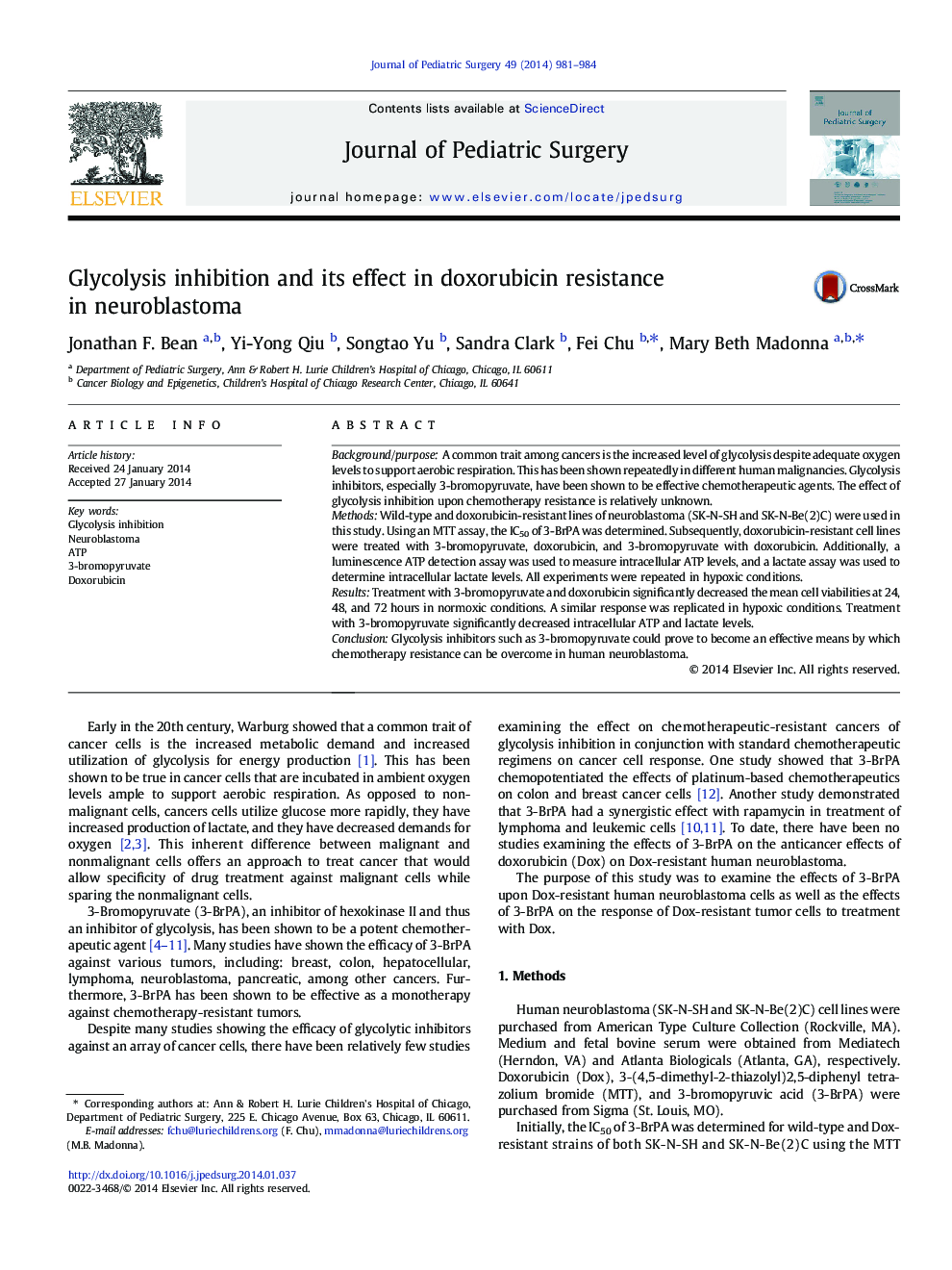| کد مقاله | کد نشریه | سال انتشار | مقاله انگلیسی | نسخه تمام متن |
|---|---|---|---|---|
| 6217375 | 1273761 | 2014 | 4 صفحه PDF | دانلود رایگان |
Background/purposeA common trait among cancers is the increased level of glycolysis despite adequate oxygen levels to support aerobic respiration. This has been shown repeatedly in different human malignancies. Glycolysis inhibitors, especially 3-bromopyruvate, have been shown to be effective chemotherapeutic agents. The effect of glycolysis inhibition upon chemotherapy resistance is relatively unknown.MethodsWild-type and doxorubicin-resistant lines of neuroblastoma (SK-N-SH and SK-N-Be(2)C) were used in this study. Using an MTT assay, the IC50 of 3-BrPA was determined. Subsequently, doxorubicin-resistant cell lines were treated with 3-bromopyruvate, doxorubicin, and 3-bromopyruvate with doxorubicin. Additionally, a luminescence ATP detection assay was used to measure intracellular ATP levels, and a lactate assay was used to determine intracellular lactate levels. All experiments were repeated in hypoxic conditions.ResultsTreatment with 3-bromopyruvate and doxorubicin significantly decreased the mean cell viabilities at 24, 48, and 72Â hours in normoxic conditions. A similar response was replicated in hypoxic conditions. Treatment with 3-bromopyruvate significantly decreased intracellular ATP and lactate levels.ConclusionGlycolysis inhibitors such as 3-bromopyruvate could prove to become an effective means by which chemotherapy resistance can be overcome in human neuroblastoma.
Journal: Journal of Pediatric Surgery - Volume 49, Issue 6, June 2014, Pages 981-984
